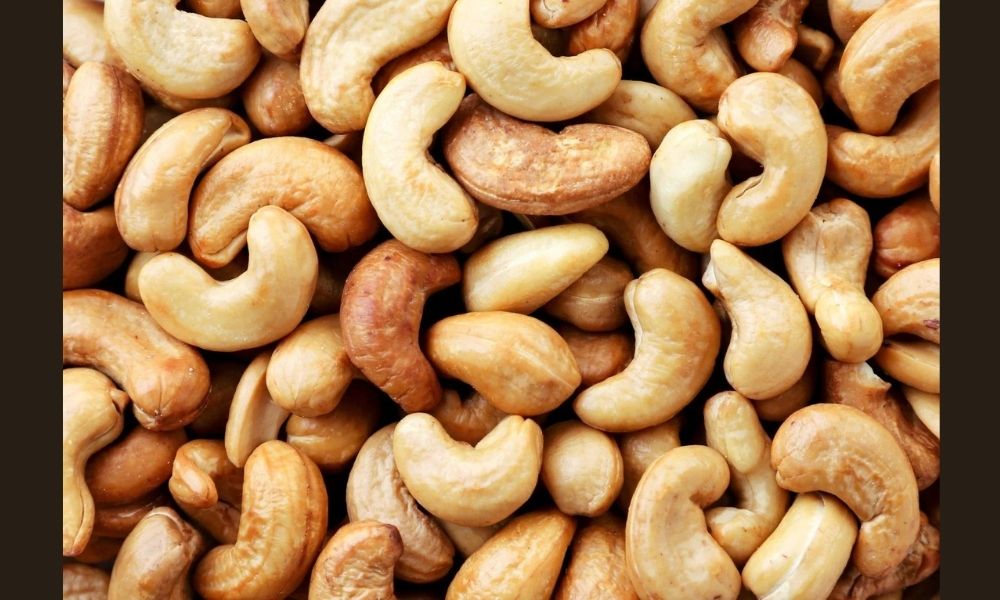Cashews are a popular and versatile nut that is enjoyed all over the world. They are not only delicious but also packed with essential nutrients that offer numerous health benefits. From improving heart health to boosting immunity, cashews have been linked to a wide range of health benefits. In this article, we will explore the various ways in which cashews can positively impact your health and why they should be a regular part of your diet.
Contents
What are Cashews?
Cashews, scientifically known as Anacardium occidentale, are tree nuts that are native to Brazil but are now grown in many tropical regions around the world. They are kidney-shaped and have a creamy texture and a slightly sweet taste. Cashews are often consumed as a snack or used in cooking and baking. They are also a popular ingredient in vegan and dairy-free products, such as cashew milk and cheese.
One of the unique characteristics of cashews is that they grow outside of the fruit, unlike most other nuts that grow inside a fruit. The cashew nut is attached to the bottom of a cashew apple, which is a pear-shaped fruit that is also edible but not as widely consumed as the nut itself.
Read:What are the benefits of kratom powder?Nutritional Profile of Cashews
Cashews are not only delicious but also highly nutritious. They are a rich source of healthy fats, protein, vitamins, and minerals. A 1-ounce (28-gram) serving of cashews contains the following nutrients:
- Calories: 157
- Protein: 5 grams
- Fat: 12 grams
- Carbohydrates: 9 grams
- Fiber: 1 gram
- Vitamin E: 1% of the Daily Value (DV)
- Vitamin K: 8% of the DV
- Thiamine (Vitamin B1): 10% of the DV
- Vitamin B6: 8% of the DV
- Folate: 6% of the DV
- Magnesium: 20% of the DV
- Phosphorus: 13% of the DV
- Copper: 31% of the DV
- Manganese: 20% of the DV
- Zinc: 15% of the DV
Cashews are also a good source of antioxidants, including polyphenols and carotenoids, which help protect the body against oxidative stress and chronic diseases.
Health Benefits of Cashews
1. Promotes Heart Health
Cashews are a heart-healthy food that can help lower the risk of heart disease. They are rich in monounsaturated and polyunsaturated fats, which are considered “good” fats that can help lower cholesterol levels and reduce the risk of heart disease. A study published in the American Journal of Clinical Nutrition found that consuming cashews as part of a healthy diet can help lower LDL (bad) cholesterol levels and increase HDL (good) cholesterol levels.
Read:What are the benefits of okra?Cashews are also a good source of magnesium, which plays a crucial role in maintaining a healthy heart. Magnesium helps regulate blood pressure and heart rate, and a deficiency in this mineral has been linked to an increased risk of heart disease.
2. Aids in Weight Management
Cashews are a nutrient-dense food that can help with weight management. Despite being high in calories, studies have shown that people who regularly consume nuts, including cashews, tend to have a lower body mass index (BMI) and a lower risk of obesity. This is because cashews are rich in protein and fiber, which can help keep you feeling full and satisfied, reducing the likelihood of overeating.
3. Boosts Immunity
Cashews are a good source of zinc, which is essential for a healthy immune system. Zinc helps in the production of immune cells and plays a crucial role in wound healing. A study published in the American Journal of Clinical Nutrition found that zinc deficiency can impair immune function and increase the risk of infections. Including cashews in your diet can help ensure that you are getting enough zinc to support a strong immune system.
4. Supports Bone Health
Read:What are the benefits of eating avocadoCashews are a good source of several minerals, including magnesium, phosphorus, and copper, which are essential for maintaining strong and healthy bones. These minerals work together to support bone density and prevent conditions like osteoporosis. A study published in the Journal of Bone and Mineral Research found that a diet rich in magnesium and potassium, both of which are found in cashews, can help improve bone health and reduce the risk of fractures.
5. Improves Brain Function
Cashews are a good source of several nutrients that are essential for brain health, including magnesium, vitamin B6, and folate. These nutrients play a crucial role in the production of neurotransmitters, which are chemicals that help transmit signals between nerve cells. A study published in the Journal of Alzheimer’s Disease found that a diet rich in magnesium and vitamin B6 can help improve cognitive function and reduce the risk of age-related cognitive decline.
6. Regulates Blood Sugar Levels
Cashews are a low-glycemic food, meaning they do not cause a rapid spike in blood sugar levels. They are also a good source of fiber and healthy fats, which can help slow down the absorption of glucose into the bloodstream. This makes cashews a suitable snack option for people with diabetes or those looking to manage their blood sugar levels.
7. Reduces Inflammation
Cashews are rich in antioxidants, which can help reduce inflammation in the body. Chronic inflammation has been linked to various health conditions, including heart disease, cancer, and autoimmune disorders. A study published in the Journal of Nutrition found that consuming cashews can help reduce markers of inflammation in the body.
How to Incorporate Cashews into Your Diet
Cashews are a versatile ingredient that can be enjoyed in many ways. Here are some ideas on how to incorporate cashews into your diet:
- Snack on a handful of raw or roasted cashews for a quick and nutritious snack.
- Add cashews to your breakfast by sprinkling them on top of oatmeal or adding them to a smoothie.
- Use cashew butter as a spread on toast or as a dip for fruits and vegetables.
- Make cashew milk by blending cashews with water and straining the mixture.
- Use cashews as a topping for salads or stir-fries.
- Make cashew cheese by blending cashews with nutritional yeast, lemon juice, and herbs.
Precautions and Potential Side Effects
Cashews are generally safe for most people to consume. However, some individuals may be allergic to cashews, and consuming them can cause an allergic reaction. Symptoms of a cashew allergy may include hives, swelling, difficulty breathing, and anaphylaxis in severe cases.
Cashews are also high in calories, so it is essential to consume them in moderation, especially if you are trying to manage your weight. Additionally, some people may experience digestive issues, such as bloating and gas, when consuming cashews in large amounts.
Conclusion:
Cashews are not only a delicious and versatile nut but also a nutrient-dense superfood that offers numerous health benefits. From promoting heart health to boosting immunity and improving brain function, cashews are a valuable addition to any diet. So, next time you reach for a snack, consider grabbing a handful of cashews for a tasty and nutritious treat.









